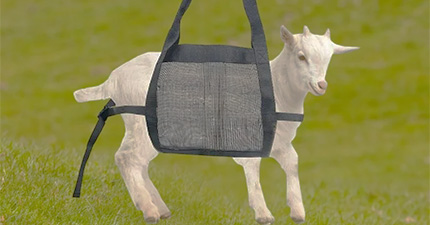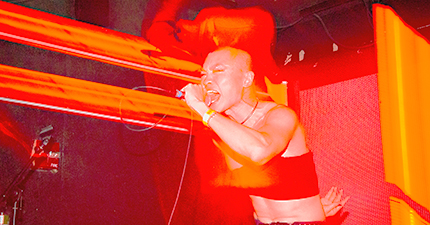Welcome to my Astro Advice Column! If you subscribe to my Astro-Kats or Star Kids Club groups you are able to ask me questions about astrology for this advice column.
Do you have thoughts about planets that are in the 12H in Placidus 1H in Whole Sign (or vice versa)? I think the general wisdom is that both systems have their place and end up telling the same story, but these seem like such opposing interpretations. In my case, this is true for my Neptune and Uranus in Capricorn!
—oneortwelve
Hello oneortwelve! You’ve brought me such a wonderful question. It’s a question that really gets into the meta narrative around astrology as a language and tool.
Now and again, the astrology fandom (I call it a fandom because in some sense we are all just writing star fanfiction) erupts into distress over the question of what is canon. I believe that many fandoms have something similar whether that is religious communities disagreeing around sacred texts or the Yuri on Ice! fandom debating whether the kiss between Victor and Yuri really happened.
So, your confusion about what to do when a planet falls in a different house based on the system of organization is quite understandable. If you've been witnessing the recurring conflicts around this issue, you might even feel a little nervous about what happens if you get it wrong.
I’ll start with a simple and technical response to your question first—look at how close the planets near the horizon either in the first or twelve house are to the actual degree of your ascendant. Planets are stronger when they are angular. If a planet is less than 8º from the angles of the chart (the ascendant, the midheaven, the descendent, the nadir), then that planet is considered angular no matter what house it is in. If a planet is more than 8º from the ascendant and behind the ascendant (in the twelfth house by Placidus or other quadrant house systems) then that planet is decreasing in strength. It is decreasing in strength even if it’s in the first house by whole sign. If a planet is before the angle then it is falling into the angle. This planet will appear in the first house by Placidus. A planet that is any number of degrees from coming into an angle is considered stronger than a planet that is falling away from an angle for any number of degrees. You can apply this to natal placements but also to transits.
Now, look at your chart in whole sign houses and calculate what planet ruled every house you have profected from throughout your life. You’ll find that your first house profection years (ages 11, 24, 36, 48, 60, 72, 84, 96) have been Saturn profection years. These will be years during which Saturn’s transits affect you more obviously. They will be years during which Saturn in your natal chart changed more profoundly. Could you say that these changes did not affect those planets you have in Capricorn? This is why whole sign houses place any planet you have in Capricorn in the first house. They, too, are affected by first house issues.
Which technique do you like better? Annual profections where age is measured by planetary significations? Or do you prefer to envision time based on the rise and fall of action? What if I told you that you can also calculate profections continuously when using quadrant houses and that the angles of the chart are just as visible in whole sign as they are in quadrant houses even if the midheaven is not always right on the top of the chart?
In a way, it doesn’t really matter what house system you are using. The degree of the ascendant and the degree of the midheaven does not change. The only thing that changes is how we organize or compose the information at hand. It’s all the same information. House systems are just different drawings of the same thing from different angles.
In a way, it does matter. What house system you choose makes it easier to use some techniques versus others. Choosing one over the other makes you envision time passing differently. This affects the pace of time itself. Astrology is storytelling and storytelling is all about composition.
That’s the simple answer. Let me get into a longer response now.
I used Placidus houses for most of my practice so it’s a house system that I am very familiar with and comfortable with. I still use Placidus sometimes but not for natal astrology. However, for natal astrology I changed to using whole sign houses three years ago. The reasons why I changed were mostly untechnical at the beginning. I had a realization in the last few years that making my sessions too technical created more opportunities for narcissistic expression for myself as an astrologer. The reason why I do client work is not to express astrology or talk about what astrology means to me or teach it. I can make plenty of time for healthy ego expression in other places. The reason I do client work is because I want to explore things like love and purpose and power with other people. To do that, I had to learn how to minimize my own presence in the session and also to minimize the language of astrology, particularly when I work with people who are new to encountering it. By making these things take up smaller space, the client has more room for their own expression. My goal in my practice is not to impress the client with my own astrological knowledge but to use the tools we have, astrology being one of them, to explore life together.
I actually come into each session knowing that the client already knows their own chart. They may not know that the Moon was applying a close square to Saturn at their birth but they know about the long stretch of time they might require before they can be intimate with someone else. My job, as someone who walks away from the client after the session, is not to prove the power of the chart and of astrology but to accompany the client as someone able to interpret the chart in an open exploration that is guided by the client’s intention.
So, I chose whole sign houses to minimize astrology’s presence, to focus on life and not representation. Sometimes, with returning clients, we don’t even look at the chart. Sometimes, we spend all of our 90 minutes on one planet. This is my own style.
The other part of this is that I have a personal story about seeing my Saturn in the first house in whole sign houses as opposed to the twelve in quadrant sign houses. I feel that the placement describes the way I have been pushed to become Saturn in my life. However, I never miss the way Jupiter is so close to my descendant even though it’s in the next sign over because there’s another story there—immigration brought Jupiter from one angle to the opposite by relocation. Maybe I might have missed this if I only used whole sign houses throughout my practice. I don’t know.
This is what works for me.
I wonder what your personal story for using the house system that you use will be. Because you are asking the question to me, I’m guessing that you have not made up your mind yet. This is good. It means that you haven’t closed your mind off to meaning. If you do end up choosing a house system at some point, I hope that you invite this openness back into your life at some point and would be open to changing your mind. I think that you can only keep a practice alive if you are willing to change your mind about how you use it.
It’s a big question you asked. There are a lot of things that I’m not recounting in my response to your question. It seems like such a small technical issue—will the displacement of the angles trick our eye into demoting their significance? But there are other conflicts hidden in this conflict. There’s a reason why it is a recurring one. Conflicts around houses are also conflicts about the context of history and how the dehistoricalization that happens as a parallel process to historicalization creates opportunities for contemporary narratives, the question of who is most qualified to inherit and interpret western culture, and questions around what astrology is even for. I invite you to find your own reasons to use your own tools. Do your research and make up your own mind.
1 of 189
>>>


